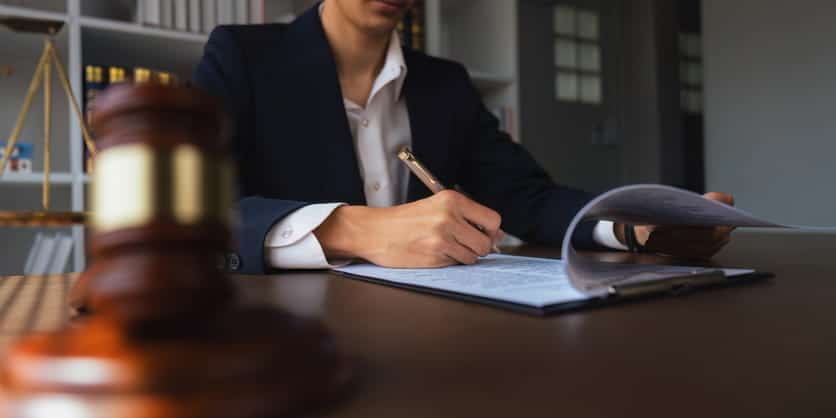What is Discovery in a Florida Personal Injury Case?

Discovery in a Florida personal injury case is the opportunity for both sides to investigate and gather evidence. It’s a formal court procedure that allows each party and their Tampa personal injury lawyers to demand evidence using the powers of the court.
The purpose of discovery is to narrow the issues in the case and put the evidence out in the open. Discovery can help the parties resolve the matter because everyone knows what the evidence is in the case.
What Are the Discovery Rules in a Florida Injury Case?
Florida’s rules of discovery come from Florida’s Rules of Civil Procedure Rule 1.280-1.410. The rules cover what kinds of things you can discover and how to initiate discovery. For example, there are rules for what a subpoena has to look like and how many interrogatory questions you can serve.
There are also guidelines for when the court can intervene if a party doesn’t answer a discovery request or the parties disagree about what one of the parties has to produce. Both parties have to follow the Rules of Civil Procedure when they prepare and respond to a discovery request.
What Are the Kinds of Discovery in a Florida Personal Injury Case?
Some of the kinds of discovery that you might use in a Florida personal injury case include:
- Interrogatories – written questions to the other party that they answer under oath
- Depositions – requiring a witness or adverse party to answer questions orally
- Admissions – asking the other side to admit that facts are true
- Subpoena – a court-order to a party or witness; the person may need to appear or produce records
- Inspection – one party may want to inspect the property that’s in the hands of the other party
- Examination – a party may ask for their own physical or mental examination of the other party
Are There Limits to Discovery in a Florida Accident Case?
Yes, there are limits to discovery in a Florida accident case. All discovery must be relevant to the case. In other words, a party may only request relevant evidence or information that may lead to relevant evidence. For example, if the other party asks for medical records from your emergency room visit right after the accident, that information is relevant. However, if they demand medical records from a routine medical exam that you had 15 years ago, that information probably isn’t relevant.
There are other kinds of limits to discovery in addition to relevance limitations. A party can’t demand discovery just to be burdensome to the other party or try to overwhelm them so they stop pursuing the case. Also, a discovery request may not ask for privileged information between the other party and their attorney. If you don’t want to respond to a discovery request, there are procedures to make an objection or move to quash a subpoena. You must follow the rules to properly object to the other side’s discovery request.
What Happens If the Other Side Doesn’t Respond to My Discovery Request in a Florida Personal Injury Case?
If the other side doesn’t respond to your discovery request, you can file a motion to compel the production of discovery. The motion brings the matter to the attention of the court. Before you make the motion, you must speak with the other side and try to resolve the dispute informally.
If you make a motion to compel and the court agrees with you, they may order the other party to pay your attorney fees for the cost of bringing the motion to compel. Florida Rules of Civil Procedure Rule 1.380 give the rules for how to bring a motion to compel discovery.
What Types of Evidence Do Parties Ask for in a Florida Car Accident Case?
Here are some of the kinds of discovery that you or the other party might look for in a Florida car accident claim:
- Names and contact information of anyone in the other vehicle
- Contact information for any other known witnesses
- A copy of the other party’s driver’s license
- Car insurance information
- Driving history, criminal history
- Substance use history; drunk driving history
- A list of claimed injuries
- Copies of medical bills
- Verification of missed work, pay stubs
- Available photos of the accident scene
- Medical records that relate to the accident
- Names of any experts that the other party might use in the case like an accident reconstructionist or medical experts
- Admissions from the other party of fault or admissions that specific facts about the case are true
Discovery in a Florida Personal Injury Case
As the accident victim, it’s essential to understand how discovery works in a Florida personal injury case. It’s also important to know the common challenges and issues that can arise in an accident case. For example, the other side may try to seek irrelevant and embarrassing information in an effort to make you give up on your case. They might ask for medical records that aren’t relevant to the case or ask for other personal information. Your Florida personal injury attorney knows what to do to shut down this kind of harassment.
When used properly, discovery can be a helpful tool for any Florida injury victim. In fact, it’s one of the most helpful ways to show the other side the strength of your case and work towards resolving the case through a settlement. When the other side knows that you have strong evidence and that you’re working diligently to prepare the evidence in your case, they’re more likely to come to the table with a fair settlement without needing to take your case to trial.

Attorneys for Discovery in Florida Personal Injury Cases
Are you an accident victim? Have you received a discovery request? Do you want to use discovery to build your case? Our Florida personal injury attorneys can help.
We’ve helped thousands of injury accident victims prepare their cases for trial. We can help you use the discovery process effectively to receive the best possible result in your accident claim. Call our legal team today for a free and confidential consultation.
